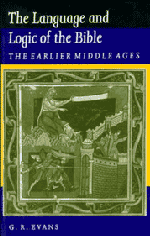Summary
The Fathers on the Bible's language
When God had created Adam and placed him in the Garden of Eden, he talked to him, telling him that he was free to eat the fruit of every tree in the Garden except one (Gen. 2:16–17). Adam understood him perfectly. Even immediately after the act of disobedience in which first Eve and then Adam ate the forbidden fruit both were able to hear ‘the voice of the Lord God walking in the garden in the cool of the day’ and to hear the sentence he passed upon them (Gen. 3:8–19). The changes which then took place as a result of Adam's sin are described in some detail in Genesis, but they amount to this: the harmony of Adam and Eve's relationship with the rest of the created world and with God himself was broken (Gen. 3:14–19).
The most important effect, in the eyes of a number of early Christian writers, was the breakdown of communication between man and God. As Gregory the Great put it in the sixth century, after man was expelled from the joys of paradise and began his exile in this present life in the world, he became blind in his spiritual understanding. When God spoke to him directly, telling him plainly to follow him or to love him, man was unable to take in what he had heard, because he was ‘frozen in a stupor of faithlessness’.
- Type
- Chapter
- Information
- The Language and Logic of the BibleThe Earlier Middle Ages, pp. 1 - 10Publisher: Cambridge University PressPrint publication year: 1984



